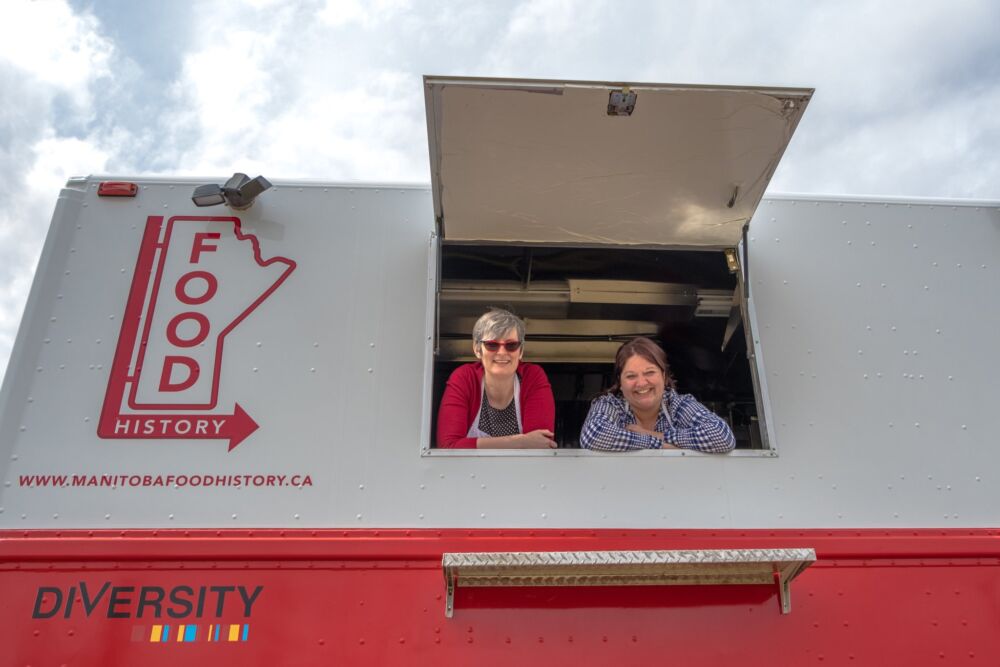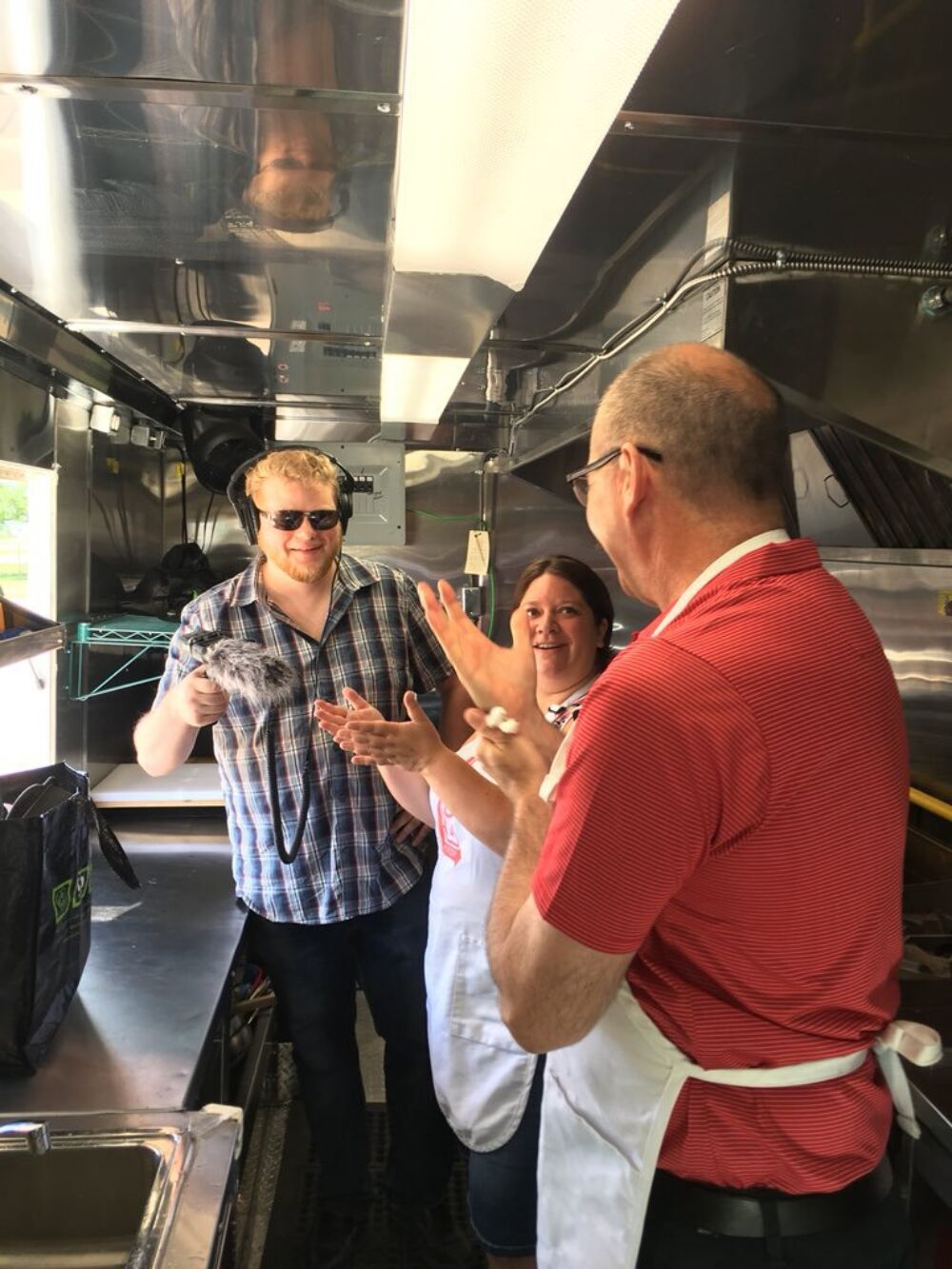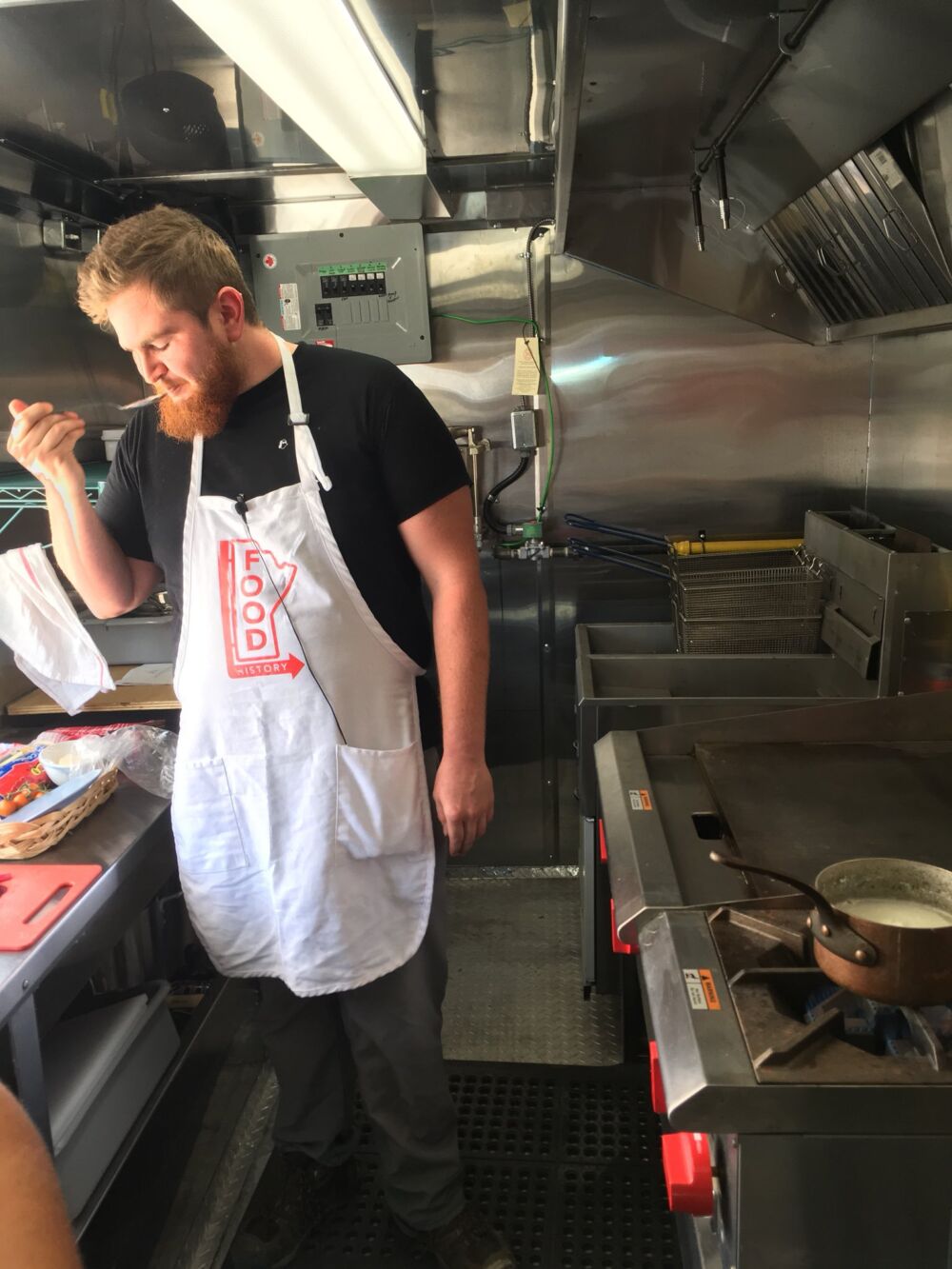Last summer, the Manitoba Food History Truck was launched as part of the Manitoba Food History Project, led by myself, Kent Davies, and Kimberley Moore.
The truck serves as a fun and safe environment in which to record the stories of Manitobans and their roles in food production, retailing, and consumption. While we are interested in documenting the stories of businesses involved in the food industry (particularly the many smaller, independent businesses that exist), the truck allows us to also study the significant roles of home cooks. Our guiding research questions are: “How has food been produced, sold, and consumed in Manitoba?” and “How have those processes changed over time?”

A project like this one is only possible because of the support (financial and otherwise) of a variety of organizations and experts. We’re grateful that the Social Sciences and Humanities Research Council and the University of Winnipeg Research Office saw value in this research and supported it. We’re also grateful to the Oral History Centre at the University of Winnipeg and to Diversity Food Services for providing expertise and assistance in so many ways.

The impetus for this project arises from my first foray into food history—my UMPress book, Snacks: A Canadian Food History. Snacks was initially conceived as a business and labour history (my areas of research specialization). I soon learned, however, that food studies was a growing field, with its own methodologies and historiography! Books and edited collections like Conversations in Food Studies reflect the tremendous growth of the field in the last decade.
The beauty of oral history interviewing—whether on a food history truck or off—is that one never knows what the outcome will be. Potential interview participants are asked in advance to outline their experience in Manitoba food production, retail, or consumption, and briefly describe what they plan to cook and why it’s meaningful to them. And yet we’re never completely prepared for the diversity and interest of the life stories that participants share.
Case in point: our first interview on the Manitoba Food History truck was with a co-worker of mine who offered to prepare puffed wheat cake. A seemingly simple dish—and yet as this man prepared it, he offered insights into questions of masculine identity, rural community expectations, and the particular challenges of shopping for and preparing dinner as a father of young children. Such interviews remind me that oral history is not so much about asking the right questions as it is providing opportunity for people to share their stories in their own way.

It takes a long time to turn this summer’s oral history interviews into useable archived materials. It takes even longer to conduct further research in archives and in secondary sources to place those interviews into historical context. When we have finished that work—many, many months from now!—we will be able to turn some of that research into episodes of our podcast series Preserves and into stories of food in place. Keep checking our project website as we will be publishing them there as they are produced. And in time, we plan to curate some pop-up events and write an interactive historical cookbook, as well!
Meanwhile, this research also provides opportunities for students in my business history and food history classes to produce projects that have a reason for existence beyond the classroom and a final grade. And with the encouragement and support of Winnipeg Public Libraries, I’ve designed a new 2-week course for students. This May, University of Winnipeg students who register in the newly created HIST-3504 will have the opportunity to spend one week at the Oral History Centre, training to do oral history and food history research and how to produce podcasts and ESRI Story Maps. The second week, they will have an opportunity to participate in an oral history interview on board the Manitoba Food History Truck, process that interview for archival deposit, and then turn it into a podcast or story map for possible publication on the project website. We’re looking forward to cooking and learning together!
Posted by Janis Thiessen
December 11, 2018
Categorized as Author Posts
Tagged community, food, food studies, food truck, history, manitoba, oral history, puffed wheat cake
Holidays + Books! Happy Birthday to J.M. Bumsted!
